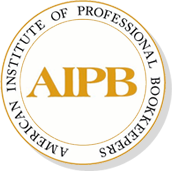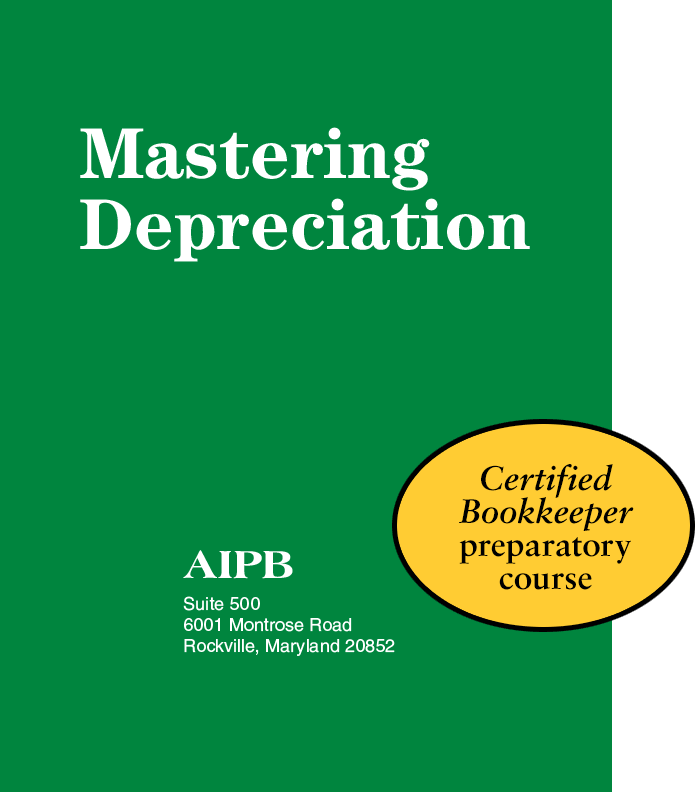204 pages [122 self-teaching + 82 self-quizzes with detailed answers]
Section 1: Depreciation for book v. tax purposes. Two ways to compute depreciation. Recording depreciation if the financial statements must undergo a compilation or review.
Section 2: Depreciation under GAAP (for book purposes). Determining the cost of an individual asset v. group of assets v. contributed assets under generally accepted accounting principles (GAAP). Determining the asset’s estimated life, residual value and book value. Journal entries for a manufacturing v. nonmanufacturing company. How depreciation appears on the financial statements.
Section 3: The straight-line method. How to compute, allocate and book straight-line depreciation. How to set up and maintain the depreciation schedule using this method.
Section 4: The units of production method. How to compute, allocate and book units of production depreciation. How to set up and maintain the depreciation schedule using this method.
Section 5: The declining balance method. How to compute, allocate and book declining balance depreciation. How to set up and maintain the depreciation schedule using this method.
Section 6: The sum-of-the-years’-digits method. How to compute, allocate and book sum-of-the-years’-digits depreciation. How to set up and maintain the depreciation schedule using this method.
Section 7: Depreciation for tax purposes. How to depreciate equipment and buildings under MACRS. How to apply the half-year convention . . . mid-quarter convention . . . mid-month convention. How to use IRS tables. Applying the Section 179 deduction. How to set up and maintain the tax depreciation schedule.
Section 8: Depreciating vehicles for tax purposes. Annual IRS limits for cars. How IRS limits apply to unmodified SUVs, pickups and vans weighing up to 6,000 lbs. Sec. 179 and depreciation if these vehicles are modified or weigh over 6,000 lbs. How to handle employee personal use of company vehicles in a sole proprietorship, S corp, C corp or partnership. How to set up and maintain the tax depreciation schedule.
Publisher: AIPB


Overall the study is beneficial.
Very easy to understand – I would love a some more practice quizzes with the answers so I can drill more in to my head! Thanks – enjoyed the course.
Very easy to understand – I would love a some more practice quizzes with the answers so I can drill more in to my head! Thanks – enjoyed the course.
There is a lot of information to cover and remember, but I think it is presented as clearly as can be expected.
There is a lot of information to cover and remember, but I think it is presented as clearly as can be expected.
I really like this book. I think there need to add a chart of comparison of (*Half year VS *Mid month VS *Mid Quarter). Same way for Vehicle.
I LIKE IT
Great workbook!
Another great book to have available
All six of the courses were good, but they could all use glossaries and indexes; and desk reference charts would very helpful
Very informative course. I like the way each method of depreciation in covered one chapter at a time. Having the two quizs at the end of each chapter is very helpful.
Very informative course. I like the way each method of depreciation in covered one chapter at a time. Having the two quizs at the end of each chapter is very helpful.
good review of what I have already had.
My opinion is the same that I sent in 07-25-2011 12:22:06pm. As I said the textbooks are excellent and easy-to-use and helpful. Please verify my CPECs. I did well on my test when I did in classes at Baruch and Bergen. Unfortunately I failed twice on Prometric test in 2011. I Think there are many trick questions. It’s hard to understand for a person who speak/read English as a second language. They recommended me to go back to the classes, but I can’t because I am unemployed. In the future I’ll buy The Encyclopedia of Journal Entries. Thank you very much. Maria Alice Buie
Very relevant. The workbook is updated, informative, and has practical way, the way each topic is discussed.
this section was a huge help. i learned many different methods of depreciation and why they would be used.
This book is clear and self-explanatory. The way the sections are structured and well laid out makes the book even more interesting and compelling to read and the end-of-section quizes reinforce one’s knowledge. I do recommend it to any accounting student.
I think the material was well organized, very understandable, and had good examples.
I like this book. The material presented in a easy accessible way. Variety of examples and detailed explanations help to comprehensive understanding. Reading was easy and pleasant.
Straight forward presentation of concepts and numerous quizzes allow for a quick, and lasting grasp of the subject.
More types than I imagined.
It was excellent.
excellent course reveiw
easy understanding
This course helped me understand the different depreciating methods, and the difference between IRS depreciation and company depreciation methods.
excellent.
Very good book. Explains depreciation in depth
OK
Only complaint I have is that the information keeps changing but I realize that is the govt. and not your fault. Information great and easy to comprehend. Recommend it to anyone in bookkeeping whether you need to know how to depreciate assets or not. At least you would have the opportunity to understand exactly what depreciation is and how it works.
I was satisfied with all of the courses. They provided a good review and adequately prepared me for the exams.